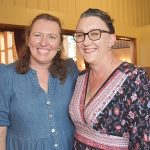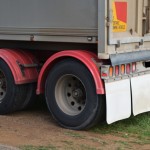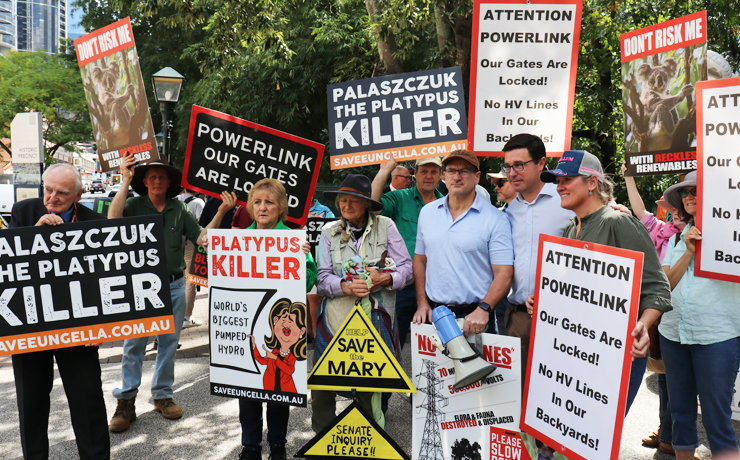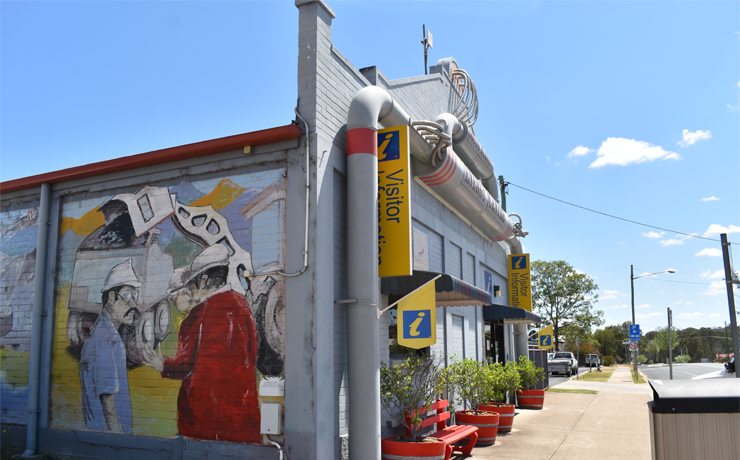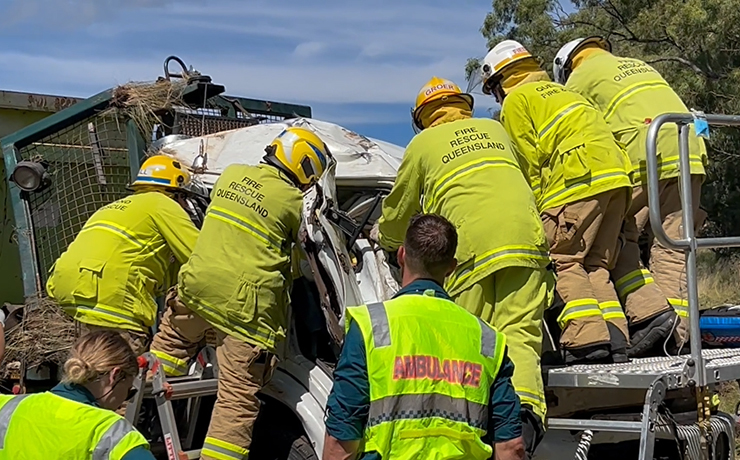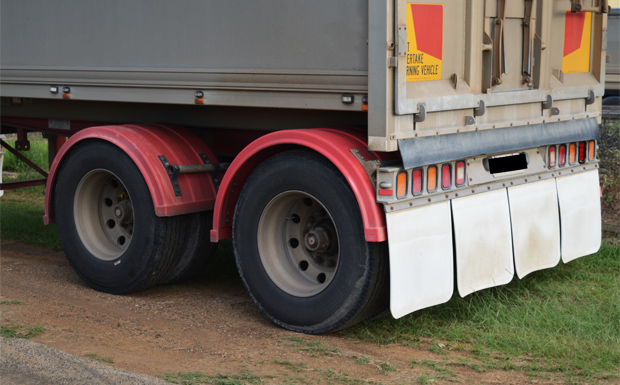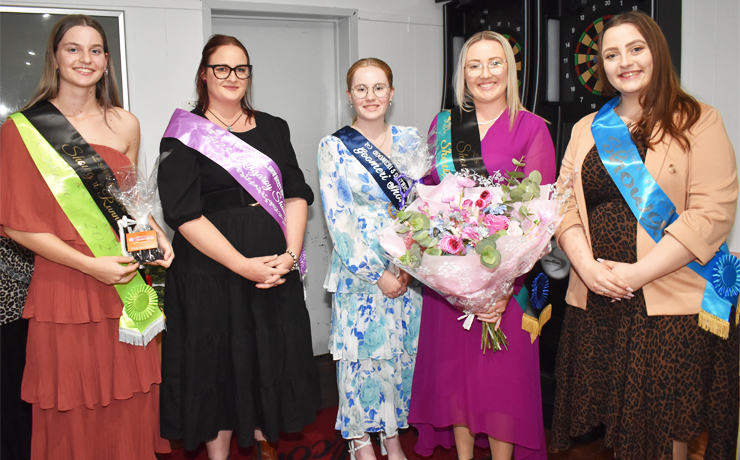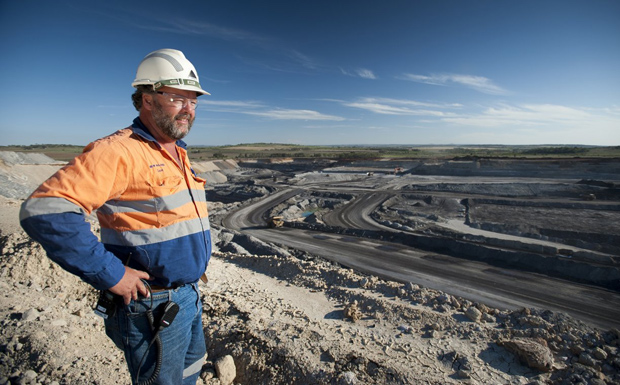
 September 11, 2019
September 11, 2019
by Anne Miller
The Acland mine saga is continuing to drag on, much to the annoyance of probably everyone involved … farmers, Oakey businesspeople, New Hope executives, mining workers and shock jock Alan Jones.
Especially aggrieved, I suspect, are the court staff and public servants who have been dealing with all the paperwork for the past decade or so.
The many reporters following every convoluted twist and turn – including those behind the reports which were central to the latest Court of Appeal judgment – would most likely prefer the whole thing to just go away quickly, too.
In fact, the only people who seem to be enjoying what’s happening at the moment are the current LNP spin doctors who have taken up the cudgels to bash the Palaszczuk Labor Government almost daily.
Whether this is because they are genuinely concerned about the economic effects of a possible mine closure on Oakey (and the mining jobs … more about that later) or whether it’s just another pro-coal skirmish in the never-ending climate change war, only they can say.
I suspect an honest answer would vary from one LNP MP to the next.
So why am I interested in Acland?
South Burnett Online readers would have noticed that we have a business directory embedded in this website.
This traces its origins to a business directory – and then website – set up in 2001 to support local businesses during the construction of the Tarong North Power Station.
Two local councils provided seed money to build that initial business directory: Kingaroy and Rosalie shire councils.
Businesses in all the towns within these two shires were listed, including Acland, a Rosalie Shire town.
I would regularly ring the businesses and check the accuracy of the listings.
One day I rang an Acland number and the man at the end of the line told me the town almost no longer existed.
All the businesses had closed and residents were moving away. He was one of the few people left.
Closed? Yes, closed. The coal mine had “bought the town”.
Sadly, I deleted his business listing and a year or so later, I deleted the Acland page altogether.
How can a mining company close down a whole town, I wondered?
I wasn’t the only one to be concerned. Former Acland resident Alan Jones had a much larger platform from which to voice his concerns … and he did so, loudly.
Concerns about the fate of the Acland War Memorial and the Acland Coal Mine Museum added to the media storm.
But nothing could stand in the way of a coal mine, it seemed.
Concessions were made, and the mine continued on.
The Acland mine came into my consciousness again in about 2006, when the future coal options for Tarong Power Station were being explored.
The so-called Tarong Transport Alliance (Tarong Energy, Leighton Contractors and Parsons Brinckerhoff) was considering the possibility of building a massive conveyor belt system to transport coal from Acland to Tarong Power Station.
This crazy idea would have carted coal day and night through a corridor adjacent to multiple farms and towns.
Thank goodness, sense prevailed somewhere and Kunioon became the favoured option.
This led to the purchase of multiple properties, the closure of a popular B&B, the Goodger store, a local cellardoor and several vineyards.
It was a classic case of jobs versus farmland, and in this case, tourism. The Tarong jobs won, although the Kunioon plan was later dropped.
But back to Acland …
By 2011, farmers in NSW and Queensland were getting bolshie about the take up of good farming land by the resources industry.
Various groups were being formed, opposing projects as coal seam gas exploration exploded and underground coal gasification was touted.
These campaigns attracted populist conservative politicians – Katter’s Australia Party, One Nation etc – and were amplified by people such as Alan Jones who organised “National Food Security Forums” in country towns.
Green groups, farmers and right-wing politicians found themselves in an uneasy alliance. On the other side was an equally unlikely mix of unions and mining companies …
Both the Labor Party and the LNP were being effectively wedged.
About this time, the proposed Stage 3 expansion of the New Acland coal mine came into the political spotlight with all the usual arguments: good farming land versus jobs.
Where would the LNP stand in the debate? The “Liberal” part of the LNP was pro-business and anti-union, while the “National” part was pro-farmer.
In 2011, a bright new face came on the political scene in the South Burnett.
Then-Kingaroy solicitor Deb Frecklington put up her hand to run for State Parliament for the first time.
She was standing for the State seat of Nanango which included, you guessed it, Acland.
Her only serious opponent, everyone thought, would be the high-profile Katter’s Australia Party candidate, Wooroolin farmer and former Test cricketer Carl Rackemann.
Carl had been invited as a guest speaker at one of Alan Jones’ Food Security Forums and was campaigning on a pro-farmer platform.
Where would Deb stand on the proposed Acland mine expansion which was drawing farmers’ ire?
In February 2012, it looked liked it had become clear.
I reported then that she had claimed a win within the party over the proposed expansion: “After months of lobbying by myself, Ray Hopper and Jeff Seeney, the LNP has made it clear that it will not support the proposal for Acland Stage 3 that would see the expansion of the open cut coal mine digging up strategic cropping land.”
If elected, the LNP would introduce Statutory Regional Planning Schemes to protect strategic cropping land.
“The fact this regional planning didn’t happen a long time ago is just another sign that this 20-year-old Labor government simply doesn’t care about regional Queensland,” Mrs Frecklington said at the time.
There was no mention of the importance of coal mining jobs or the future of the mine to the Oakey business economy.
It was obvious the position was aimed directly at the minor parties or Independents courting the old National Party heartland by opposing the mine’s expansion.
The LNP won the 2012 election, Deb was elected and the rest is history … well, not quite.
Not long after Campbell Newman’s victory, Stage 3 was back on the cards, albeit in an adjusted form.
“We made clear during the election that an LNP Government would not support the expansion plans for New Acland as then proposed because it would impact good agricultural land and be too close to local communities,” then Deputy Premier Jeff Seeney said.
“The Premier made good on that commitment on taking office.
“After subsequent discussions (my emphasis), the New Hope Group has now come back to government with a vastly reduced proposal which is a big difference from earlier plans and we are prepared to look at this new proposition.
“The revised proposal is 63 per cent smaller than the original. The mining footprint would be reduced by 2300ha.
“Critically, mining over the town of Acland is no longer proposed, neither is diversion of Lagoon Creek; the reduction in scope will move mining 10km from Oakey and the Jondaryan rail load out facility will be moved to the mine site, 8km from the town.”
Well, that’s all right then, isn’t it?
Well, no … not according to the local farmers who continued their protests even while New Hope was running multiple TV advertisements showing rehabilitated ex-mine sites with grazing cattle.
Tuesday’s Court of Appeal judgment referred obliquely to this LNP backflip: “However, due to certain political issues that arose, Acland had to modify its original proposal in November 2012 and so fresh terms of reference were promulgated in March 2013.”
In 2015, farmers and conservationists – under the banner of the Oakey Coal Action Alliance – took the matter to the Land Court.
Now all the LNP could talk about was jobs and Oakey businesses. Deb was photographed at rallies with miners (although, reportedly, they were told by their union not to wear any insignia that identified them as unionists).
Talk in the press was also all about jobs … jobs that could be gained if the mine went ahead, or lost if it closed. The reports also cited alleged “delays” in the Land Court.
It was these reports that this week’s Appeal Court judgment referred to.
The media claims allegedly stirred up the Land Court Member so much his eventual decision against New Acland – which noted the project could damage groundwater for farmers for hundreds of years – was capable of being challenged by New Hope, which sought a judicial review.
In 2018, Justice Helen Bowskill ruled the Land Court decision (or at least parts of it) should be sent back to the Land Court for further consideration.
It was this Supreme Court decision that Oakey Coal Action Alliance in turn appealed – and lost this week, effectively sending everything back to the Land Court yet again.
Oakey Coal Action Alliance is weighing up its next move.
So … what should happen now?
In my opinion, the fight to save Acland and its surrounding farmland was lost 20 years ago.
Since then, the (former) residents of the town, local farmers, small businesses and the mining workers themselves have all been pawns in a cynical game of politics played by the LNP, unions, Greens and Labor in shifting alliances.
In recent years, the LNP has been urging the State Government to just approve the expansion.
Mining workers have been urging the State Government to just approve the expansion.
But the Labor Government – which passed special groundwater legislation but has not issued New Hope with the licences – has been sitting on its hands, saying it was awaiting the results of the judicial process.
As the LNP has stated repeatedly, this is not necessary.
And they’re right. Ultimately, the fate of the expansion rests with the government, not the court.
It’s interesting the voices we have not been hearing … where’s AgForce been in all this? Inner-city Green preferences have been keeping the Labor Party very quiet, too.
It is also apparent that New Hope has very deep pockets.
According to a report in the Guardian, the company spent $1.2m in a pre-State election advertising blitz in 2017 promoting the Stage 3 expansion.
In fact, according to the Guardian, Adani and BHP were the only resource companies to spend more on advertising than New Hope in 2017.
Earlier this year, New Hope set a September 1 deadline to the State Government or it would start retrenchments.
The fact that a company feels capable of issuing any elected government a threat like this is breathtaking.
But let’s face it, in 2019 Queensland, coal is king.
I believe the Oakey Coal Action Alliance should save its money – and save everyone else the trouble – and not proceed with any new action in the Land Court.
Then we can all get on with mourning the death of a once proud township and maybe pause occasionally to wonder why so many politicians of all varieties seem to value coal over food.







